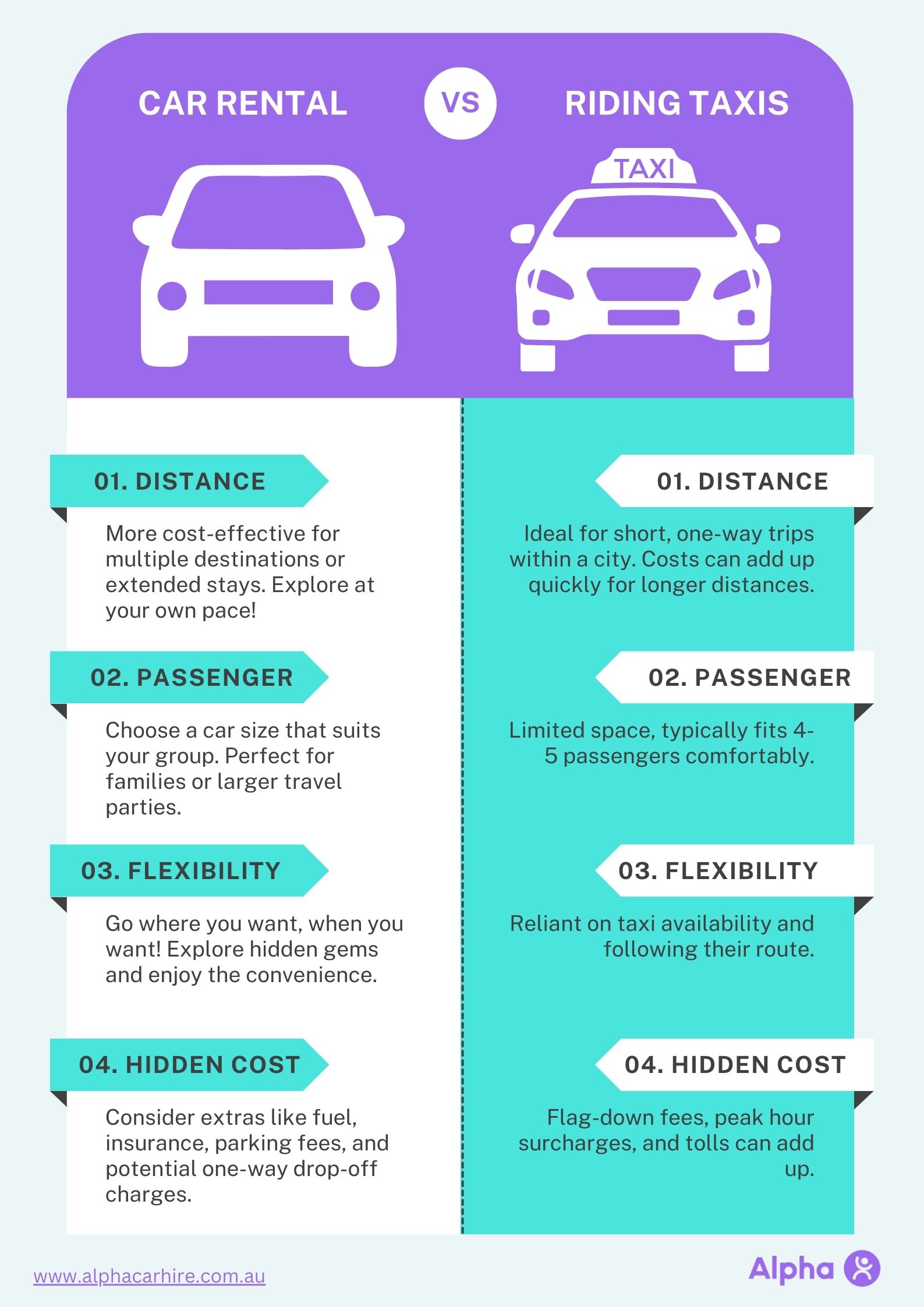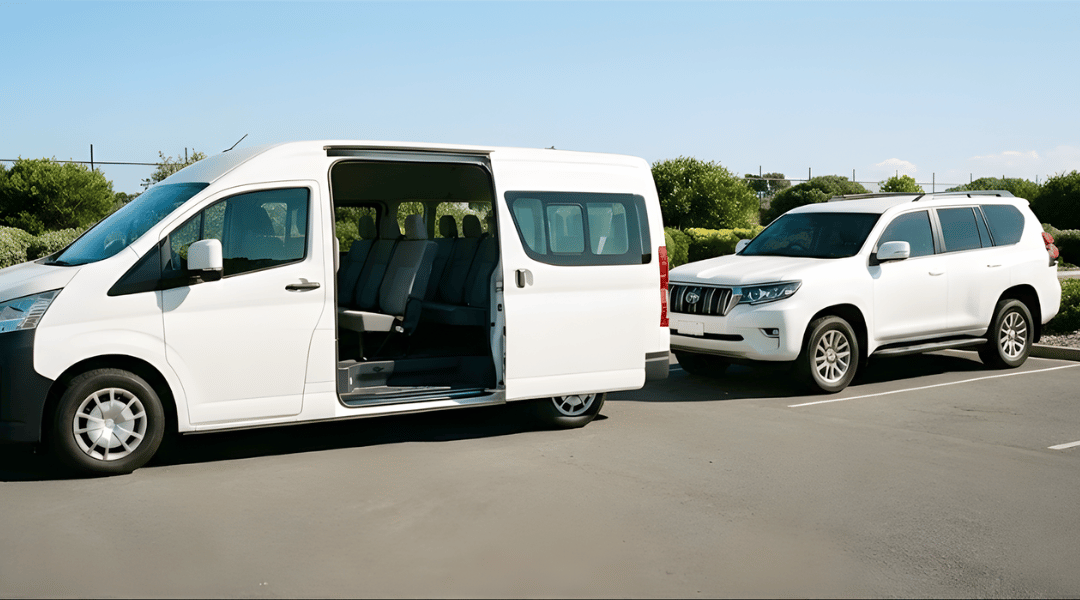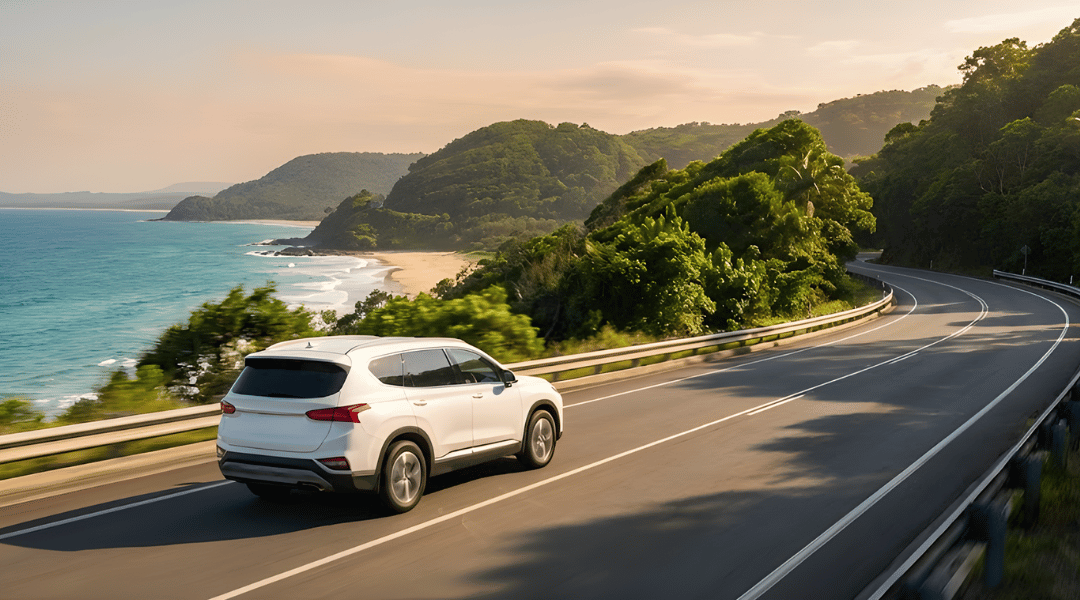In Australia, navigating unfamiliar cities or tackling weekend getaways often sparks a debate: is renting a car or relying on taxis the more economical choice? Both options offer distinct advantages, and the winner ultimately depends on several factors.
Considering the Big Three: Cost, Convenience, and Flexibility
Before diving in, it’s crucial to consider the big three: cost, convenience, and flexibility. While taxis offer ultimate comfort and eliminate the hassle of parking, they can be expensive, especially for longer trips. Conversely, rental cars provide the freedom to explore at your own pace and potentially save money on longer journeys, but come with the added responsibility of driving and navigating unfamiliar roads.
Cost Showdown: Rental Cars vs. Taxis
Let’s delve into the nitty-gritty of costs associated with each option.
Rental Cars: A Breakdown of Expenses
- Base Rental Rate: This is the starting point and depends on factors like:
- Vehicle Type: Compact cars are the most economical, while SUVs and luxury vehicles cost more.
- Rental Company: Compare rates between different rental companies to find the best deal.
- Rental Duration: Longer rentals often offer lower daily rates, but be mindful of minimum rental periods.
- Fuel Expenses: These depend on:
- Car’s Fuel Efficiency: Choose a fuel-efficient car to minimize gas costs.
- Distance Traveled: Longer distances translate to higher fuel expenditure.
- Gas Prices: Research average gas prices in your destination city.
- Insurance Costs:
- Basic Insurance: This might be included in the base rental rate, but coverage is often minimal.
- Optional Insurance: Consider additional coverage for collision damage, theft, or personal injury depending on your risk tolerance.
- Additional Fees: Be aware of potential extra charges:
- One-Way Fees: Dropping off the car at a different location can incur a fee.
- Tolls: You might be responsible for tolls on highways.
- Parking: Parking costs in city centres can add up.
- Young Driver Surcharge: Drivers under a certain age might face additional fees.
Taxis: Fares and Surprises
- Base Fare: This is the initial charge when you hail a taxi.
- Per-Kilometer Charge: The fare increases based on the distance travelled.
- Additional Charges: Be mindful of surcharges that can significantly impact the final cost:
- Peak Hours: Fares can be higher during rush hour or weekends.
- Waiting Time: You might be charged extra if the taxi is stuck in traffic or waiting for you.
- Airport Pickups: Airport pickup fees are often added to the fare.
- Tolls: You might be responsible for tolls incurred during the journey.
Making the Cost Comparison:
To determine the most cost-effective option, consider these factors:
- Number of Travelers: Sharing a rental car cost among a group can be cheaper than multiple taxi fares.
- Length of Stay: For extended stays, renting a car might be more economical than frequent taxi rides.
- Travel Distances: Longer distances usually favour rental cars due to potential per-kilometre taxi charges.
- Fuel Efficiency: Opt for fuel-efficient rental car models to minimize fuel costs.
- Your Comfort Level with Driving: Factor in the cost of parking and the potential stress of navigating unfamiliar roads.
Considerations for Renting a Car
Unpacking the Price Tag: What Affects Rental Costs
Understanding the breakdown of rental car costs can help you navigate the pricing structure and find the best deal for your needs. Here’s a deeper dive into the key factors that influence rental car prices:
-
Rental Duration and Mileage:
- Daily Rates vs. Weekly Rates: Generally, longer rental periods offer lower daily rates. This incentivizes longer road trips. However, be mindful of any minimum rental durations required by the company.
- Mileage Limits: Some rental companies set a cap on the total mileage allowed within your rental period. Exceeding this limit can result in significant per-kilometer charges. Plan your itinerary carefully and choose a car rental package with a mileage allowance that suits your travel distance.
- Unlimited Mileage Deals: Certain companies or special promotions might offer unlimited mileage deals. These can be ideal for extensive road trips without worrying about exceeding mileage limits and incurring extra charges.
-
Vehicle Type and Size:
- Compact vs. Luxury: As mentioned earlier, compact cars are the most economical option. They offer good fuel efficiency and are easier to maneuver, especially in crowded city centres. Upsizing to SUVs, luxury vehicles, or specialty models like vans will come with a higher price tag due to increased operating costs for the rental company.
- Several Passengers and Luggage: Consider the number of people travelling with you and the amount of luggage you’ll be carrying. Compact cars might be sufficient for solo travellers or couples with light luggage, but a larger SUV might be more comfortable for families or groups with bulky luggage.
-
Seasonal Variations in Rental Rates:
- Peak Tourist Seasons: Rental prices tend to fluctuate throughout the year, with peak seasons like summer holidays or major events like music festivals leading to significant increases. Booking your car rental in advance, especially during peak times, can help you secure better deals.
- Off-Season Travel: Consider travelling during the shoulder seasons (spring or fall) to potentially score lower rental rates due to decreased tourist demand.
-
Additional Rental Costs:
- One-Way Fees: Dropping off the car at a different location than where you picked it up can sometimes incur a one-way fee. Plan your itinerary to minimise this cost if possible.
- Optional Insurance: Basic insurance might be included in the base rental price, but additional coverage options like collision damage waiver (CDW) or personal accident insurance (PAI) might come with extra charges. Evaluate your risk tolerance and driving experience when deciding on insurance options.
- Local Taxes and Fees: Be aware of any local taxes or additional fees that might be added to your final rental bill.
Beyond Cost: The Perks of Renting a Car
While cost is a major factor, renting a car offers several unique advantages that can significantly enhance your travel experience:
-
Flexibility to Explore at Your Own Pace and Schedule:
- Spontaneous Detours: Unlike taxis with fixed routes, a rental car allows you the freedom to explore at your own pace, take unexpected detours, and stop at scenic overlooks or interesting attractions that catch your eye along the way.
- Unrestricted Itinerary: You’re not limited by taxi availability or operating hours. Plan your itinerary around your interests, whether it’s visiting museums at your leisure or catching a sunset at a secluded beach.
-
Convenience for Exploring Remote or Off-the-beaten-path Destinations:
- Public Transportation Limitations: Public transportation might not reach all the hidden gems on your travel list, especially those located outside major cities or towns. A rental car grants access to off-the-beaten-path adventures, remote national parks, or charming coastal villages that taxis might not readily serve.
- Carrying Your Gear: If you plan on participating in outdoor activities like hiking or camping, a rental car allows you to conveniently transport all your necessary gear to your desired locations.
-
Potential Cost Savings for Group Travel or Extended Stays:
- Shared Costs: Splitting the rental cost among a group of travellers can be significantly cheaper compared to paying for multiple taxi fares, especially for longer journeys.
- Extended Stays: For extended stays in a particular location, renting a car might be more cost-effective than relying solely on taxis for daily commutes and errands. Consider the cumulative cost of taxi rides over your stay compared to the rental price.
Considerations for Taking Taxis
While rental cars offer flexibility, taxis provide a different set of advantages, making them a suitable choice for specific situations.
Unpredictable Costs: What Affects Taxi Fares
Understanding the factors that influence taxi fares can help you manage your budget and choose the most cost-effective option:
- Distance Traveled and Route Taken: Naturally, the longer the distance and the more complex the route, the higher the fare. Knowing your destination beforehand can help the taxi driver choose the most efficient route.
- Time of Day and Demand Fluctuations: Taxis often have peak hour surcharges, particularly during rush hour or late-night periods. Be mindful of these fluctuations and plan your trips accordingly.
- Availability of Ride-Sharing Services and Fare Comparison Apps: Ride-sharing services like Uber or Ola can sometimes offer competitive fares compared to traditional taxis. Utilize fare comparison apps to find the most cost-effective option for your specific journey.
The Convenience Factor: Why Taxis Remain a Popular Choice
Despite potential cost concerns, taxis offer undeniable benefits for certain travel situations:
- Immediate Accessibility Without the Hassle of Ownership: No need to worry about car maintenance, insurance, or parking struggles. Simply hail a taxi and get on your way.
- Avoidance of Parking Hassles and Fuel Expenses: Finding parking, especially in busy city centres, can be time-consuming and expensive. Taxis eliminate this stress, allowing you to focus on your destination.
- Convenience for Short-Distance Trips or One-Time Travel Needs: For quick errands, short commutes, or single journeys, taxis provide a convenient and hassle-free solution.
Environmental and Social Considerations
Beyond the individual cost and convenience, both renting a car and taking taxis have environmental and social implications to consider:
Transportation Choices and Sustainability
- Rental Cars:
- Carbon Footprint: As you mentioned, rental cars generally have a larger carbon footprint than taxis, especially for solo travellers. This is because a single car emits emissions, whereas a taxi can potentially be shared by multiple passengers, reducing the per-person impact.
- Fuel Efficiency: To minimize environmental impact, consider opting for fuel-efficient car models offered by Alpha Car Hire. Look for rentals with high gas mileage ratings or even hybrid or electric vehicle options, if available.
- Eco-Friendly Practices: Some rental companies are implementing eco-friendly practices like carbon offset programs or investing in renewable energy sources. Research Alpha Car Hire’s policies to see if they have any sustainability initiatives.
- Taxis:
- Shared Rides: When taxis are shared by multiple passengers, they can be a more sustainable option compared to single-occupancy rental cars. Encourage ride-sharing with fellow travellers waiting for taxis, especially for shorter distances.
- Traffic Congestion: However, the abundance of taxis on the road can contribute to traffic congestion, which in turn increases emissions for all vehicles involved.
Supporting Local Economies and Infrastructure
- Rental Cars:
- Local Workforce: As you noted, rental car companies often employ a local workforce, contributing to the economic well-being of the communities they operate. This can be a significant factor if supporting local businesses is a priority for you.
- Taxis:
- Taxi Drivers and Industry: Choosing taxis directly supports taxi drivers and the taxi industry, which provides a livelihood for many people. This can be especially impactful in areas where tourism is a major economic driver.
- Public Transportation Infrastructure: Utilizing taxis contributes to the demand for public transportation infrastructure. This can encourage investment in expanding and improving public transport options, potentially benefiting future travellers and residents who rely on these services.
Overall:
There’s no single perfect answer when considering the environmental and social impacts of taxis vs. rental cars. It depends on factors like the number of passengers, distance travelled, and availability of ride-sharing options for taxis.
If minimising your carbon footprint is a top concern, consider ride-sharing taxis or explore public transportation options if available. Renting a fuel-efficient car becomes a more sustainable option if you have a group to share the costs and emissions.
Factors Influencing the Decision
1. Travel Itinerary and Destinations:
- Multi-Stop Exploration: If you’re planning a road trip with numerous stops, detours, and spontaneous adventures, a rental car provides unmatched flexibility. You can control your pace, adjust your route on the fly, and explore hidden gems off the beaten path that taxis might not reach conveniently.
- Single Point-to-Point Journey: For a direct trip from the airport to your hotel or a single destination within a city, a taxi can be a more straightforward option. It eliminates the need for navigation and parking hassles.
2. Budget Constraints and Financial Priorities:
- Cost Comparison: Carefully compare the estimated costs of car rentals (including fuel, parking, and potential one-way fees) with anticipated taxi fares. Consider the number of people travelling – splitting a rental cost can be cheaper than multiple taxi journeys.
- Travel Style: Are you a budget traveller or someone who prioritizes convenience? Taxis might be more expensive for longer trips, but they eliminate the upfront cost of car rental and the uncertainty of gas prices.
3. Comfort Level with Driving and Reliance on Public Transport:
- Driving Confidence: If you’re unfamiliar with Australian traffic laws or feel uncomfortable navigating in a new country, taxis offer a stress-free solution. However, if you’re an experienced and confident driver, exploring Australia at your own pace with a rental car can be an exhilarating experience.
- Public Transport Reliance: How comfortable are you relying on buses, trains, or trams? If you prefer a door-to-door service and dislike navigating public transport schedules, taxis might be more appealing. On the other hand, some areas might have limited public transport options, making a rental car the only practical choice.
Additional Considerations:
- Number of Travelers: Sharing a rental car with a group can significantly reduce individual costs compared to multiple taxi fares.
- Luggage: If you have a lot of luggage, the convenience of a rental car for transportation and storage might outweigh the cost.
- Accessibility Concerns: For travellers with physical limitations or mobility issues, taxis might be the more accessible option compared to navigating car rentals and parking challenges.
Conclusion
This exploration has highlighted the pros and cons of both renting a car and taking taxis in Australia. The cost analysis, additional considerations like environmental impact supporting local economies, and personal preferences all play a role in making the most suitable choice.
By considering the various factors discussed, you’re well-equipped to make an informed decision that aligns perfectly with your travel goals, budget, and personal preferences. Now, go forth and explore Australia in the way that best suits you!
Convinced that a rental car is the way to go? Explore Australia at your own pace and budget with Alpha Car Hire!
Alpha Car Hire boasts a convenient network of locations across Australia, including major airports and city centres. Whether you’re arriving at Brisbane Airport, Sydney Airport, Melbourne Airport, Sunshine Coast Airport, or Gold Coast Airport, Alpha Car Hire has a location ready to serve you. They also have branches in key city centres like Brisbane, Sydney, Melbourne, Sunshine Coast, and Gold Coast, making it easy to pick up a car wherever your adventure begins.
Alpha Car Hire offers a wide range of vehicles to suit your needs, from compact cars to SUVs, all at unbeatable prices. Book directly on their website for the best deals and experience the freedom of exploring Australia on your terms.
Click here to Rent a Car at Alpha Car Hire today!








